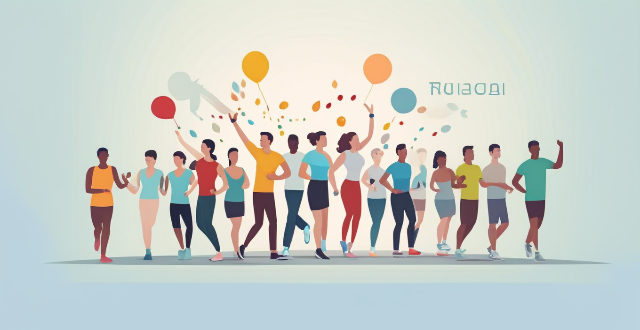International sports organizations are crucial for global cooperation, promoting peace, cultural exchange, economic development, health, gender equality, environmental sustainability, and humanitarian aid.

International Sports Organizations: A Catalyst for Global Cooperation
International sports organizations play a pivotal role in fostering global cooperation. They serve as platforms for countries to come together, transcending political, cultural, and economic barriers. Here's how they contribute to global unity:
1. Promotion of Peace and Diplomacy
One of the most significant roles of international sports organizations is promoting peace and diplomacy. Sporting events like the Olympic Games have often been described as "the peaceful war," where countries compete without violence. These events provide an avenue for countries to engage in dialogue and build relationships outside the realm of politics.
2. Cultural Exchange and Understanding
Sports are a universal language that transcends cultural differences. International sports organizations facilitate cultural exchange by bringing people from different backgrounds together. This interaction helps in understanding and appreciating diverse cultures, leading to mutual respect and harmony among nations.
3. Economic Development and Partnerships
Sporting events organized by international sports organizations can significantly boost local economies. They attract tourism, create job opportunities, and stimulate infrastructure development. Moreover, these events often lead to partnerships between countries, with shared interests in promoting sports and reaping economic benefits.
4. Health Promotion and Education
International sports organizations emphasize the importance of physical activity and its role in maintaining good health. They promote fitness programs, educate people about the benefits of sports, and encourage nations to invest in sports infrastructure. This not only improves public health but also fosters cooperation in sharing knowledge and resources.
5. Gender Equality and Inclusivity
Many international sports organizations are at the forefront of promoting gender equality and inclusivity in sports. They advocate for equal opportunities for women and work towards breaking down barriers that prevent certain groups from participating in sports. This effort aligns with broader global initiatives aimed at achieving social justice and equality.
6. Environmental Sustainability
In recent years, international sports organizations have started focusing on environmental sustainability. They aim to reduce the carbon footprint of sporting events, promote eco-friendly practices, and raise awareness about climate change. This shows a commitment to addressing global challenges and encouraging nations to collaborate on environmental issues.
7. Disaster Relief and Humanitarian Aid
Sports organizations often come forward to support disaster relief efforts and humanitarian aid. They use their influence to mobilize resources, raise funds, and bring attention to crises affecting various regions of the world. This demonstrates a sense of global responsibility and solidarity among nations.
In conclusion, international sports organizations play a multifaceted role in fostering global cooperation. They act as bridges between nations, promoting peace, cultural exchange, economic development, health, gender equality, environmental sustainability, and humanitarian aid. By harnessing the power of sports, these organizations contribute significantly to building a more united and cooperative world.